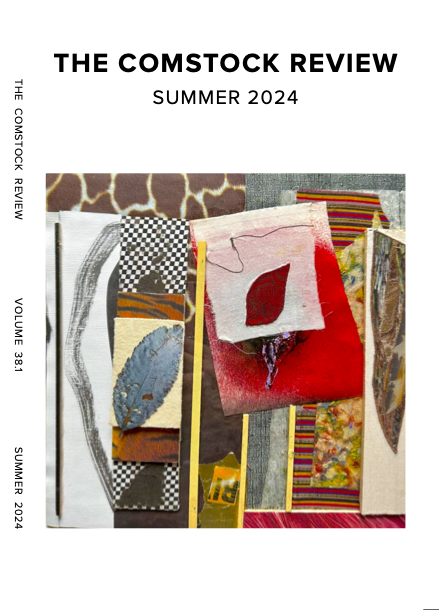Website
Type Of Publisher
Magazine, Press
Genres Published
Poetry
Year Established
The Comstock Review (Journal) – 1987; Comstock Review, Inc. – November 2019
Address
Syracuse, New York
Name
Carolyn Ostrander and John M. Bellinger
Title
Managing Editors
Mission Statement / Editorial Focus
Mission Statement:
The mission of Comstock Review, Inc. (“CRInc”) is to promote the writing, reading and appreciation of poetry, and to provide opportunities for poets of all ages to share their work with broad audiences. We work to bring high-quality poetry to a wider audience through print, electronic media and in-person activities.
We seek to encourage and honor diverse poetic voices. We affirm the “classic” talents of seasoned writers and give a never-forgotten hand up to new, rising talent. At the same time we work to attract new audiences and to broaden awareness of rich poetic heritages and innovative forms of expression. Editorial Focus of The Comstock Review (poetry journal):
Our primary vehicle for achieving this mission is the volunteer editorial board that has overseen publication of The Comstock Review from its founding over thirty-five years ago as the local poetry publication, Poetpourri (renamed The Comstock Review beginning in 1997).
The Comstock Review (the poetry journal) is proud of its long-established reputation of publishing the finest known and unknown poets throughout North America. The editors use an anonymized peer review process, and choose poems solely on what we consider to be their artistic merits. The editors bring diverse preferences and interests to the peer review process, collaborating to select the a broad mix of the best poems submitted.
Editors share the following guidelines in general:
Well crafted verse, either traditional or non-traditional,
A poem that tickles your brain long after the page has turned,
Theme or approach that casts new light on the world and the human condition,
Effective use of poetic devices and sonic qualities,
Refreshing, distinctive imagery and diction.
Accepts Unsolicited Submissions
yes
Submission Guidelines URL
Reading Period
From 01 / 03 / 01 -31
Response Time
01 - 04 Due to unexpected volume we are currently responding 1-3 mo. past close of submissions.
Author Payments
none
Formats
print
Contests
yes
Contest Guidelines
Number Of Issues Per Year
2
Price Per Issue
12.50
Subscription Price
$30.00
Total Subscribers
about 150
Total Circulation
250-300
Number Of Books Published Per Year
1-2
Distributors
N/A
Do You Have Any Cover Letter Advice?
Whether new or returning, Welcome!
We focus more on poems than on credentials, but it's ok to say hi!
Include contact info in COVER letters -
This is the place for name /address & bio - NOT on filenames or poems
About bios: Be Brief (50 word limit)
What Do You Look For In A Submission?
We care about content -and- craft; sincerity and playfulness.
Show us what language can do, with thoughtful sound & imagery:
a compelling read, a startling insight, meaningful use of poetic technique.
We prefer Submittable but also accept USPS.
What Advice Do You Have For First-time Submitters?
THE POEM IS THE THING. Keep writing, keep crafting, send your very best work. You're not too young (or old); it's not too late. The editors here will appreciate it for what it is. THANKS for sharing, and being brave!
Do You Have A Favorite Unsolicited Submission Discovery Or Anecdote?
We use anonymized reading in our poem & chapbook contests. Editors screen submissions. In contests they send the top 25 to our judge with no names. In 2015 we were shocked when Ted Kooser won the chapbook prize; in 2021 it was a winner's 1st book!
Who Is Your Ideal Reader?
Readers who are open, inquiring, & thoughtful. We try to widen our readership by making copies available in schools, local libraries, waiting rooms and (when we can) jails. Our ideal reader may be new to reading poetry or a lifelong learner.
Welcome!
Magazine Press

